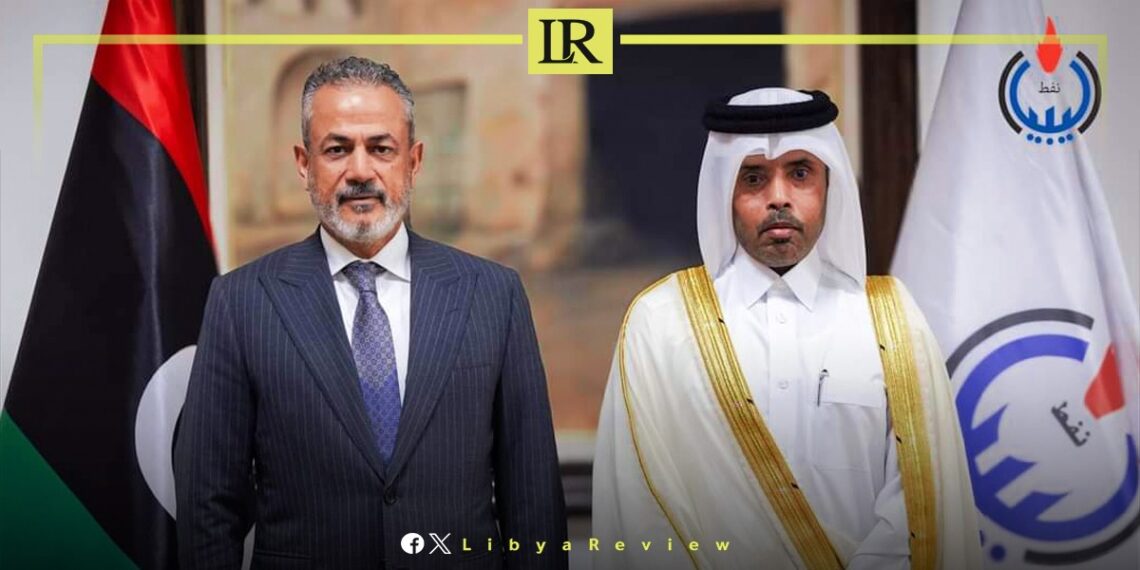The Chairman of the National Oil Corporation (NOC) of Libya, Farhat Bengdara, met with the Qatari Ambassador to Libya, Khalid Mohammed bin Zabin Al-Dossari, to discuss ways to enhance cooperation in the oil services sector. The meeting, which took place in Tripoli, focused on strengthening bilateral ties and exploring opportunities for collaboration in the energy industry.
The NOC’s media office reported that both parties expressed a strong commitment to deepening their partnership, which is expected to bring mutual benefits to both Libya and Qatar. They discussed various aspects of oil services, including technical support, infrastructure development, and investment opportunities. The Qatari ambassador reiterated his country’s interest in supporting Libya’s efforts to boost its oil production and improve its energy infrastructure.
During the meeting, the NOC provided an update on Libya’s oil production statistics. The NOC announced that Libya’s total production of crude oil, condensates, and natural gas over the past 24 hours reached 1,543,603 million barrels of oil equivalent. This impressive figure reflects Libya’s significant role in the global energy market and highlights the country’s potential for further growth and development in the oil sector.
According to the NOC’s latest report, the daily production of crude oil amounted to 1,267,706 barrels. Additionally, the production of condensates stood at 51,435 barrels per day, while natural gas production reached 224,462 barrels of oil equivalent per day. These figures underscore Libya’s capacity to maintain substantial production levels despite the challenges it faces.
The NOC’s commitment to transparency and regular reporting is crucial for maintaining investor confidence and ensuring the stability of the oil market. By providing accurate and up-to-date information on production levels, the NOC aims to attract further investments and foster a positive business environment.
The meeting between Bengdara and Al-Dossari also underscored the importance of international cooperation in the oil and gas industry. As global demand for energy continues to rise, partnerships between oil-producing countries like Libya and Qatar become increasingly vital. These collaborations not only enhance production capabilities but also contribute to the overall stability and sustainability of the energy market.
Libya’s strategic location and abundant natural resources make it a key player in the global energy landscape. The NOC’s efforts to boost production and improve infrastructure are essential for harnessing this potential. By partnering with countries like Qatar, Libya can leverage international expertise and investment to achieve its energy goals.


